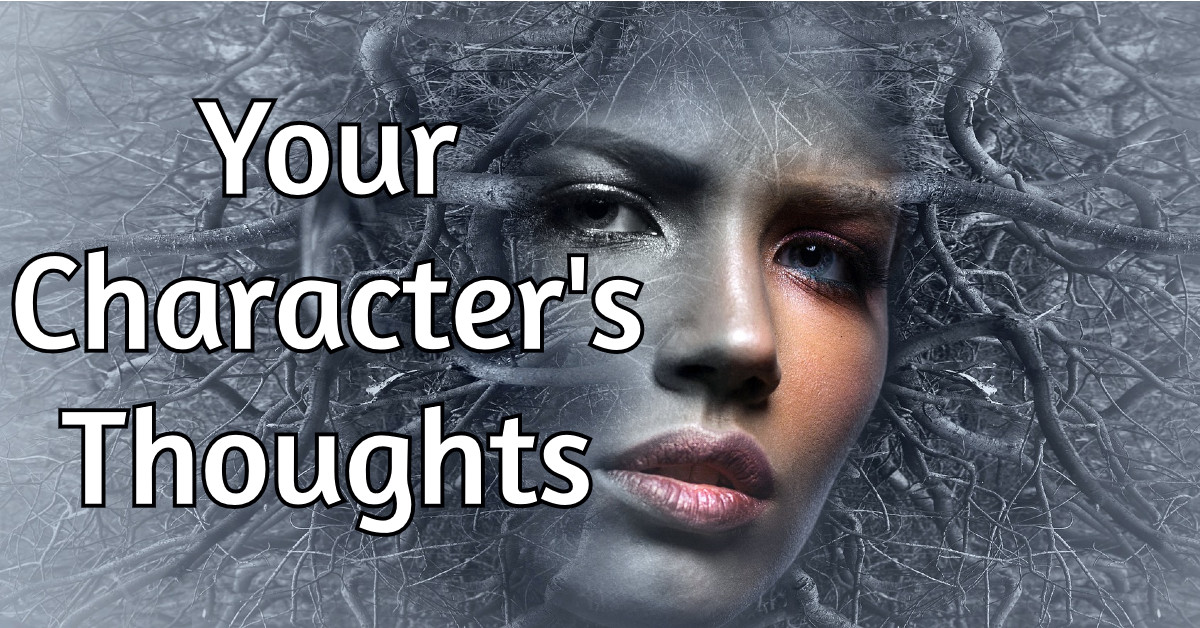At a glance, it used to be easy to identify what a character was thinking, hearing, seeing, or saying BECAUSE the author would write: he thought, she heard, he saw or she said… The current trend is to remove such markers or filters to reduce the “narrative distance” between the character and the author. This is a psychological technique that gives the reader the perception they are listening directly to thoughts. Based on the number of best selling authors using this technique, it obviously works.
The five narrative modes of fiction are:
- Dialogue (quotes from characters)
- Action (expression of movement, often with risks)
- Description (information for the reader of what the story world is like)
- Exposition (explanation of the story situation)
- Thought (what characters are thinking, also known as internal monologue)
The minimization of filter words in modern writing has made the last three narrative modes less obvious and frequently jumbled together. Below are brief excerpts from some SciFi masters:
This passage by Andy Weir is all thoughts without any tags. The character regains consciousness and what follows is the internal stream of consciousness.
What’s going on? I want to find out, but I don’t have much to work with. I can’t see. I can’t hear anything other than the computer. I can’t even feel. No, that’s not true. I feel something. I’m lying down. I’m on something soft. A bed.
—Andy Weir Project Hail Mary 2022 Hugo Finalist
The next passage is by Arkady Martine with a mash-up of feelings, gesture recognition, emotional response, observation, and recollection. Is it all thought? Is it simply exposition? Is it description from the POV character? A little of all three.
Nine Hibiscus felt a flicker of warmth at the familiarity of the gesture, warmth mixed with uncomfortable dread: like her, Twenty Cicada touched the ship, but he touched it like he was longing for space to come in and take his hand. He’d done that for as long as Nine Hibiscus had known him, and the two of them had met on their very first deployment.
—Arkady Martine A Desolation Called Peace 2022 Hugo Award Winner
The next passage is by Emily St John Mandel. It’s written in present tense with an omniscient narrator, which adds more complexity and a feeling of something profound. Miranda is the POV character who observes someone shrug while looking at a phone. She feels a dream-like sensation and can’t tell if she is actually asleep or awake. (If awake then it was a thought, if asleep then it was a dream.) Ms. Mandel is a master of relating thoughts.
Jevan shrugs. He’s looking at something on his phone, distracted, his face lit blue by the screen. Mranda returns her attention to the house. The sensation of being in a dream that will end at any moment, only she isn’t sure if she’s fighting to wake up or to stay asleep.
—Emily St. John Mandel Station Eleven 2015 Winner Arthur C. Clark Award
What’s best?
The right narrative mode for any author depends on the genre, setting, and author preference. However, the authors winning awards in 2022 are pushing the mash-up of description, exposition and thought.
Narrative balance
Most speculative fiction includes a balance of narrative types. Some writing coaches suggest highlighting narrative modes in different colors to spot under- or over-use. Authors may wonder: “How can I use all the modes?” The answer is: Know your characters. If you don’t know what they are thinking, ASK THEM QUESTIONS!
Process
Look at a paragraph you just wrote. Ask the POV character a question, then write another narrative phrase or sentence based on the answer.
Helpful questions
If an author reads a book they admire, a little study and imagination can reverse the process–look at an artful sentence and think of the question the great author asked his character to arrive at the narrative. Below are “reverse engineered” questions from a few passages in the books listed above.
Five Senses
What do you see, feel, taste, smell,hear? hands gripping a rope, gray skies, smoke
What’s the temperature? hot cold
What are you lying on?
Family History
What is your ancestry? inherited a temper from father and an Irish accent from mother
World View
Do you have secret or radical views?
Purpose
What are you trying to do? find lodging, pay bills
What’s your plan?
Something Wrong
What’s the discrepancy? the key still in the lock, finger print on the window
What is the emotion is being expressed by others? red faces and clenched fists shouted anger
Do you have internal conflicts? can do things but don’t want to
What is hurting?
Intent of Others
What do they want to do? fly away, go west, kill you
What are others doing?
What do you suspect?
Assessment Without Touching
Does something look light or heavy? the metallic rock looked heavy
Where is the light coming from?
What does the new person look like?
Movement
What movement is happening? people walking, ships sailing
What are you doing? riding a street car, flying a spaceship, flipping a switch
Desires
What do you want? to stay, to go, to escape, to survive, to get revenge
Self Assessment
What’s your self assessment? good shot, man of leisure, persistent, attractive
What is your financial status? no money, all the money needed
What do you long for?
Size of things
What is the scale of things around you? immense, vast, miniature
What’s near and what’s far away?
Take a guess
What do you think will happen? the ship will sink, the enemy will fire
Reminds you of?
What made you think of that?
What are the possibilities?
Where can you go?
Crazy
Do you worry about your sanity?
Are you dreaming?
Recall
Memory of comfort lost?
What can’t you remember?

